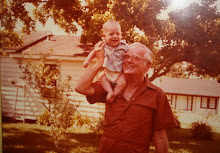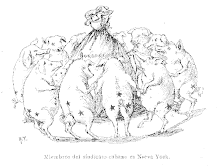Last weekend—after the record snowfall postponed it for a week—I attended the first job interview I’ve had in some time. I won’t mention the organization by name because, well, I think I have a good chance of getting hired. But I’ll give you some idea of the type of organization this is. Like Teach for America and other programs, this group recruits talented individuals (that’s me) who have been spared the misfortune of earning a degree in education.
Let me be frank here. I don’t begrudge educators; hell, I’m an educator myself. I do, however, believe that more often than not those who pursue a degree in education tend to be poorly prepared to educate. There are several reasons for this. But to minimize my incessant rambling—for which I have quite a penchant—I’ll confine my opinions to what I think is the most important reason. Those who advocate for degrees in education make the horribly false assumption that an ability to wield content is a natural consequence of learning to teach. This couldn’t be further from the truth. Now, one might argue, and they’d be correct, that many teachers have learned content after being exposed to it over the course of teaching the class. This argument—that a good teacher can overcome both hurdles and unpreparedness—may be sound. But by what distorted logic do we deem it reasonable to assume that most or even many teachers are capable of this feat. Why do we countenance this ridiculous argument? Of course a teacher should know how to teach. A carpenter should know the dimensions of a 2x4 (and it’s not 2x4 if that’s what you’re thinking). But you wouldn’t have someone build your house if he could only tout his ability to competently measure lumber. So why the hell would anyone let that someone into a classroom if they didn’t know what they are to teach?
But let me tear you away from my long digression for a moment. The interview process, for which I was one of approximately fifteen present applicants, included three activities and a personal interview. The first activity required that we watch a short class simulation video, and then write up a formal evaluation. The next two activities were critical thinking group exercises. Divided up into groups of four and five, we were presented with several scenarios and problems for which we were tasked with working out solutions.
It’s with the last activity that I had and continue to have real problems with. Let me explain. After coming back from a short lunch we were all, all fifteen or so of us, brought into a room and made to stand in a circle. At this point a perky little twit who had earlier identified herself as a trained linguist, an ominous enough sign at the time, dumped a large box of construction paper, string, and other odds and ends on the floor amongst us. She then told us to take ten minutes to construct a something we thought could symbolize “intelligence.” Intelligence, I thought. How fucking appropriate!
My first reaction was one of pity. Clearly, this poor idiot was unable to conceptualize intelligence herself; so she hoped we might help her by building it for her. Luckily for us we were allowed to use craft materials. In her padded room back at the monkey house she likely has only her stale feces and menstrual blood available with which to communicate with her captors.
So I dove into the junk, and, while everyone around me began pasting, cutting and folding, I decided to take a different route. I took one single strip of yellow construction paper that I bent into a circle and closed with a clothes pin. Voila!! Here’s the perfect symbol of intelligence. It’s simple, because true intelligence can make the complex seem simple. It’s yellow, the color of light, because intelligence is and should be equated with enlightenment (a natural enough metaphor, I thought). It’s a circle, no end and no beginning, because intelligence means nothing in isolation; intelligence must be shared. And, most significant of all, it showed that an intelligent person can find symbolism in not just everything but anything.
I sat proudly with my golden ring as everyone else feverishly pasted, cut and tore through paper and popsicle sticks on the floor. But then it really got weird. It quickly became clear to me that, despite all the feverish pasting, cutting and gluing, most of these people hadn’t a thought in their head about how to demonstrate “intelligence” without words. What occurred in that room, the moronic dancing, spinning, shit-faced grins, and arm waving was enough to make a retard embarrassed. It was an uncomfortably long process of sheer foolishness followed by unearned applause and a speedy exit.
So what did we learn? What piece of profound enlightenment did we walk away with? Well, I’ll give you a hint; it ends with “ALL” and starts with “FUCK.”
DP widens economic discrimination with free lunches
-
Now that Oh Se-hoon has failed to reach the minimum quorum needed to
overturn the DP’s signature
we-love-all-people-and-they-will-love-us-with-votes policy...
14 years ago









Sounds more like an exercise in spinning bullshit. Of course you didn't learn anything -it wasn't about that- but you did give them solid proof that you can bullshit with the best of them.
ReplyDeleteHave you heard back?